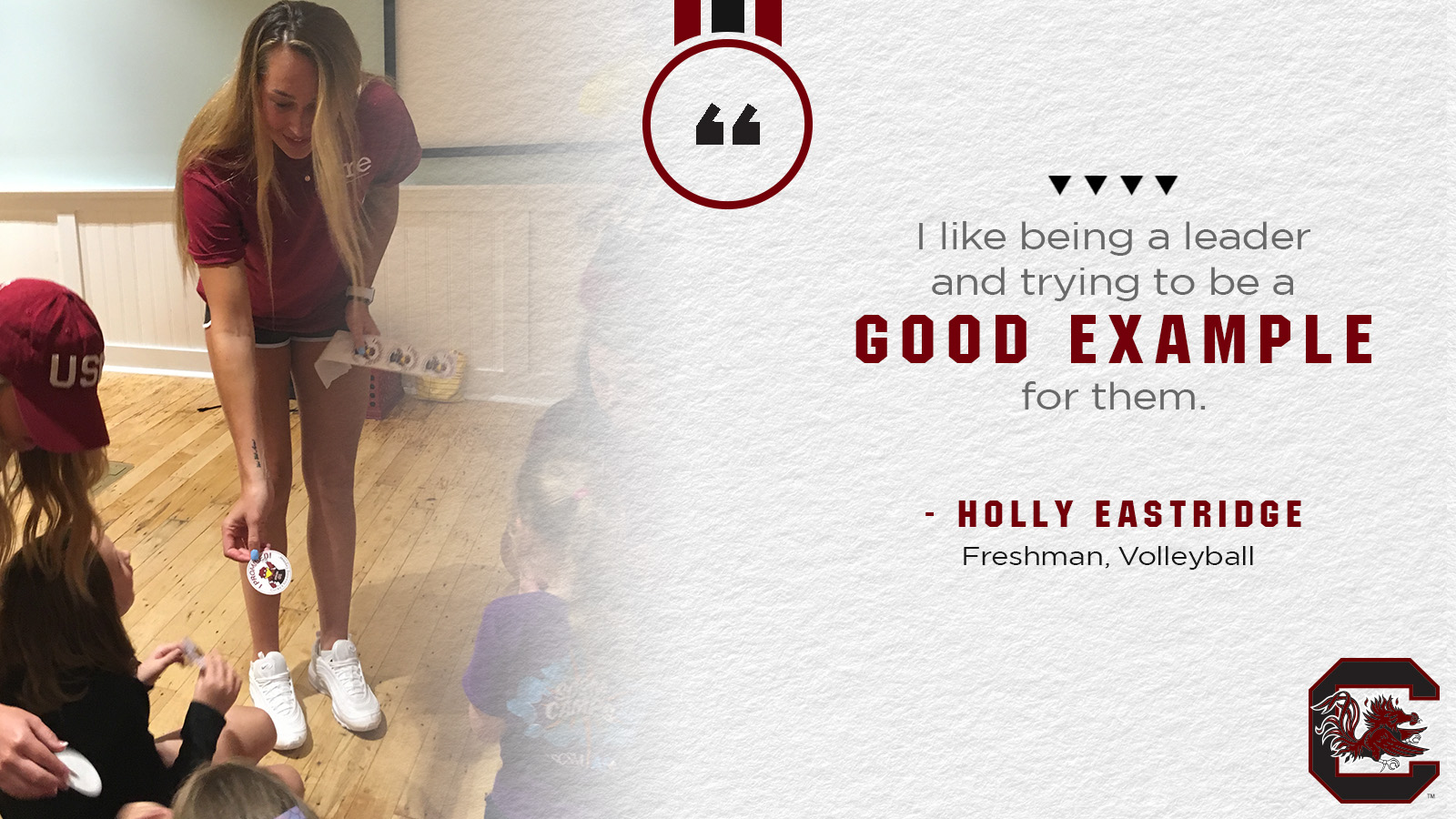
Volunteer Opportunity Shines Light on Summer Bridge Program for Newcomers
While their first full semester at South Carolina hasn’t started yet, Gamecock freshmen student-athletes and other newcomers are already seeing the importance of giving back to the community. More than two dozen Gamecock freshmen and some transfers who are participating in South Carolina’s Summer Bridge program volunteered to read to children at the State Museum in Columbia on Thursday as part of Cocky’s Reading Express literary outreach program.

Jeff Heinrich
“It’s fun making kids happy,” said volleyball freshman Holly Eastridge. “They really look up to us. I like being a leader and trying to be a good example for them. It was fun hearing their reactions because they were so excited to hear us read to them.”
“I like getting out of my comfort zone and helping out in the community,” said Jeff Heinrich, a junior college transfer with the baseball team. “Seeing the kids as well as my peers laugh when I was reading was a really great experience.”
“I really enjoyed the opportunity to read to the kids because it allows us to connect with the community that supports us so much,” said freshman softball student-athlete Karsen Ochs. “It raises awareness for what the University of South Carolina is all about in trying to give back to the community. It’s been awesome.”
The Summer Bridge program for student-athletes was started nearly a decade ago to help Gamecock freshmen transition from high school to life in college before they are fully immersed in their seasons and their first full traditional semester on campus. Every Gamecock freshman is required to enroll in the summer class which meets Monday through Thursday for six weeks.
“It makes the transition to college a lot easier.”
– Karsen Ochs
“With our Summer Bridge program, it’s important to set the tone from the get-go about how we want to be involved in the community,” said Jessica Gibson, Director of Enrichment Services at the Dodie Academic Enrichment Center.
“We focus on helping them to prepare the academic skills they will need to be successful in college, and more recently we are paying more attention to developing the whole student. One of our focuses this summer was to get the student-athletes out into the community right off the bat. We’ve also put a focus on mental health and developing their career interests so that they’re already beginning to think about life beyond sports.”

South Carolina’s newcomers are seeing the benefits of the course.
“I’ve made so many friends doing this,” Eastridge said. “It’s fun getting together with other student-athletes who are going through the same thing and sharing the same experiences. The support they provide us academically is really great, and I appreciate all of it.”
“The program has been influential for me,” added Ochs. “Being able to come to campus and learn where we’re going, how to get around, and how to live on our own; it makes the transition to college a lot easier. The one-on-one aspect with your academic advisor and academic coaches has been really powerful for me.”
With the mental health and wellness component, Gibson noted that the goals are to not only make them aware of all the resources that are available for student-athletes on campus, but to also take away any stigma for them to seek help in those areas.
“One of the speakers they have in class is Dr. Mike McCall who teaches on campus and meets with our student-athletes for screening as well,” Gibson said. “We also worked with Wellness Director Sarah Noll to do more activity-based events when they come here for study hall. We have scenario roundtables where they are put into groups and given different scenarios about challenges they might face as student-athletes that may affect their mental wellness. We look at what their reactions would be and what resources they would seek out and how they would support teammates. We want it to be very conversational.”












